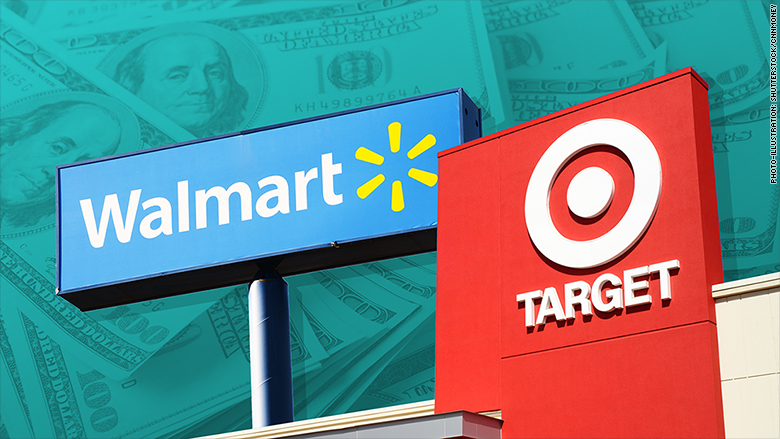
If you're slogging your way through the day after a long weekend, here's a financial digest to get you back in the swing of things, and catch you up on the money news you might've missed.
Lawmakers passed a bank deregulation bill last week aimed at helping small lenders. But it could also be a boon for some bigger banks.
And we got some tough (but not shocking) news about Millennials' financial well being last week. A new report shows just how hard the Great Recession hit the generation (Hint: it didn't help).
Here's what it all means.
ROLLING BACK BANKING REGULATIONS
Lawmakers passed sweeping financial reform after the 2008 financial crisis. Now they are undoing some of that legislation.
Congress passed a bank deregulation bill last week to help tiny community lenders. The law had bipartisan support, and will benefit thousands of community banks that had little to do with the 2008 financial crisis. But it could also free large regional banks from tough scrutiny that forced them to build giant rainy-day funds.
Congress also included a little something for consumers in the legislation: free credit freezes.
CNN's Matt Egan reports on the surprise winners of the bank regulation rollback.
Speaking of banks, they've been rolling in the dough recently. American banks had their most profitable quarter ever.
THE LONG, TOUGH ROAD FOR MILLENNIALS

In news that likely surprised no worker under the age of 35, a new report came out last week that found many Millennials may never get over the Great Recession.
The net worth of a typical family headed by someone born in the 1980s was 34% below what was expected, according to the Federal Reserve Bank of St. Louis.
But the bad news doesn't end there.
The typical Millennial family lost ground between 2010 and 2016, after the recession ended. These folks, who were in their late 20s and early- to mid-30s in 2016, were the only age group to fall behind out of the six cohorts studied.
Sigh.
CNN's Tami Luhby spoke to young workers to find out just how the economic downturn affected their careers. Here's what she found.
And while we're piling on the bad news: 40% of Americans can't cover a $400 emergency expense.
But there is a silver lining: That's an improvement from half of adults being unable to cover such an expense in 2013. The number has been ticking down each year since. Read more about the struggle here.
HOW MUCH IS TOO MUCH TO PAY FOR COLLEGE?
High school seniors and their parents are likely facing one of the biggest bills they've ever seen: college tuition.
Yes, going to college is expensive. Really expensive.
Students entering college this year could pay more than $190,000 for a bachelor's degree. But that's not everyone. Some students will pay next to nothing.
So just how much should you pay for college?
CNN's Katie Lobosco talked to experts to find out what they recommend. Here's what they said.
RETAILERS TAKE AIM AT AMAZON

Amazon has a target on its back ... literally.
The company has been siphoning off customers from retailers for years. And its competitors are spending a lot of money to fend off the giant.
Walmart, Target and Kroger in particular are opening their wallets to fight back. They've raised workers' wages, remodeled stores and even lowered prices.
CNN's Nathaniel Meyersohn breaks down for what it means for shoppers.
And here's a fun story to end on: Tired of your boring cereal? Well you're in luck. Kellogg is launching a new Froot Loops flavor for the first time in 10 years. Bon appetit!
